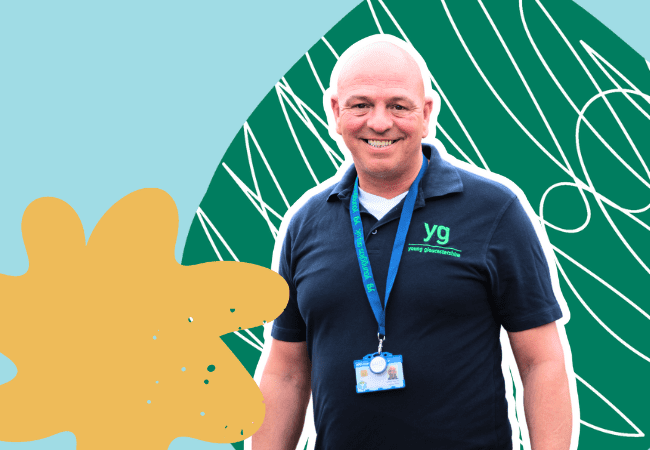
World Suicide Prevention Day 2024
Counsellor and Therapeutic Service Manager, Lois Norman discusses how to spot the signs, start meaningful conversations, and offer support:
Tuesday 10th September marks World Suicide Prevention Day, a global initiative to raise awareness, reduce the stigma around suicide, and take proactive steps to prevent it. According to the World Health Organisation, 726,000 people take their own life every year, with many more attempting suicide. In 2021, suicide was the third leading cause of death among 15–29-year-olds globally.
At Young Gloucestershire (YG), we see first-hand the growing demand for mental health support among young people. As referrals to our services increase, our mental health offer continues to expand to meet the needs of those facing significant challenges.
Breaking the Silence: Talking About Suicide
For many young people, talking about suicide can feel overwhelming – whether they’re experiencing suicidal thoughts themselves or are worried about someone else. But by talking openly about suicide, we’re not only raising awareness; we’re also starting to break the stigma that surrounds it.
We can all play a role in this. By sharing knowledge, speaking openly, and breaking the silence, we help create a more supportive environment. Simple acts of kindness, like listening, asking how someone is doing, or just being there, can offer hope. It’s important to remember that people don’t always have the words to express how they feel, and it can be difficult to know if someone is struggling with their mental health or experiencing suicidal thoughts.
Recognising the Signs of Suicidal Thoughts
The signs that someone may be having suicidal thoughts can be subtle, and not everyone shows the same signs. But research shows that asking someone directly about suicide can actually reduce the risk of them ending their life. Giving them the space to talk openly can provide an opportunity to seek help and stay safe.
Here are some signs to watch for if you’re concerned about someone:
- Withdrawal from friends, family, work, school, or hobbies. They may lose interest in things they once enjoyed.
- Physical changes, such as a lack of interest in personal appearance, not changing clothes regularly, poor personal hygiene, or noticeable weight loss.
- Unusual behaviour, like giving away possessions they care about, including sentimental items, pets, or valuables.
- Feelings of hopelessness or worthlessness. They may express guilt or feel as though their life has no purpose.
- Changes in language: Statements like “I can’t take it anymore” or “Everyone would be better off without me” are signals that they may feel trapped or hopeless.
- Sleep disruptions, whether sleeping much more or much less than usual.
- Sudden mood swings, anger outbursts, or engaging in risky, out-of-character behaviours.
If you notice these signs, starting a conversation can be a critical first step. You don’t need the perfect words – just asking if they’re okay can open the door to a meaningful discussion. Offering help and encouraging them to seek professional support might be life-saving.
How You Can Support Your Own Mental Health
Mental health is as important as physical health. Here are a few practical ways to support your well-being:
- Stay connected: Building and maintaining relationships can improve self-worth and foster a sense of belonging. Spend time with friends, chat online, volunteer, or go for a walk with someone you trust.
- Be active: Physical activity boosts your mood by causing positive chemical changes in your brain. Take a walk, join a gym, or participate in a sporting activity.
- Learn something new: Developing a new skill can bring a sense of achievement and purpose.
- Practice acts of kindness: Helping others can create positive feelings and a sense of reward.
- Eat healthily and stay hydrated: Regular, nutritious meals and hydration are essential for both physical and mental well-being.
- Prioritise sleep: Good sleep hygiene is critical for a healthy mind and body. Aim for a consistent sleep schedule and a restful environment
Available Support for Suicidal Thoughts
Around 1 in 4 young people experience suicidal thoughts, often due to a mix of factors. Reaching out for help can feel daunting, but knowing where to start is crucial. Available support might include:
- Talking therapies, such as counselling
- Medication, prescribed by a healthcare professional
- Community mental health support, offering ongoing guidance
- Crisis services, for urgent care
- Peer support, connecting with others who have similar experiences
At Young Gloucestershire, we’re dedicated to helping young people find the right mental health support, even though we don’t offer crisis services directly. Our counsellors and youth workers are highly trained and create safe, non-judgmental spaces where young people can talk about their feelings.
If You Need Urgent Help
If a young person needs urgent assistance, please reach out to:
• 999 (emergency services)
• NHS Crisis Team: 0800 169 0398
• Text ‘SHOUT’: 85258
• Samaritans: 116 123 or email jo@samaritans.org (24/7)
• Childline: 0800 1111
• Papyrus HOPELINE: 0800 068 4141, text 07860 039 967, or email pat@papyrus-uk.org
You may also like...
The Story of an Arcus Family

Supporting Ukrainian Refugees

Understanding the ‘Hidden Victims of Crime’ Project

Alcohol Awareness Week

